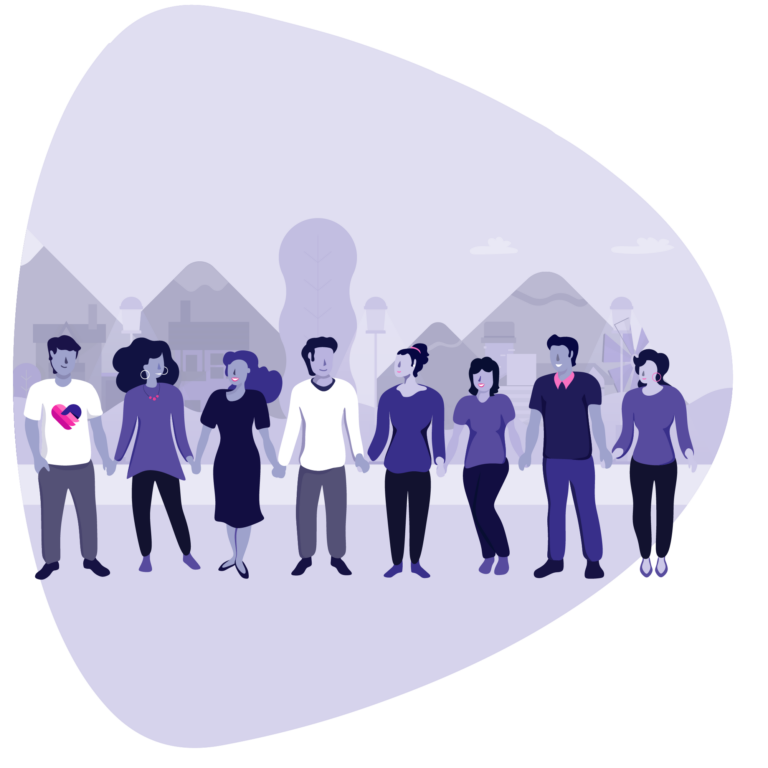Iris clinicians are at the heart of what makes our organization such a special place to work. That’s why we’re turning the spotlight on the amazing work they’re doing every day. This month, we’re sitting down to talk with Dennis Dodd, a PMHNP practicing in California.
Q. How did you find Iris and decide you wanted to be an Iris provider?
A. I saw ads on Indeed when I was doing job searches, and I kept seeing Iris. I applied to another online company first, and they responded to me initially, and unfortunately, that didn’t work out. I didn’t like the way they did things, but Iris was so professional and on the ball that I was exceedingly impressed right from the very beginning.
Q. How does teletherapy compare to in-person work?
A. There are some significant advantages, and there are some minor disadvantages. The disadvantage is that some senses are missing when meeting people. For instance, I attended a continuing medical education seminar yesterday morning about smoking. And unless I ask somebody if they smoke, I can’t tell. But a lot of times when I met someone in person, they walked in the room, and you would know if they smoked. There are just some senses that are missing, and you can’t always see their whole body. I remember one time, a patient with OCD came in, and their hands were beet red because they were washing their hands so much. You can’t always see that online, but you learn how to adapt.
One of the major advantages is that I can reach people that are literally on the other side of the country. I’m seeing patients in California, and that’s amazing if you stop and think about it. It’s also safer for me.
Q. How do you foster connection with patients virtually?
A. It’s really the same way I did it in person, in many respects. I show an interest in their lives. I ask them a lot of questions that are pertinent to their lives and what’s been going on for them. I laugh with them. I empathize with them. And it’s easy to connect emotionally with people, even if you’re doing it virtually.
Q. As a healthcare professional, how do you manage work-life balance?
A. It’s tremendously easier managing work-life balance from home because my commute is really short, and it’s incredible how much time and money goes into working at a distant site from your home.
When I used to commute from where I lived in downtown Chattanooga, it took me 25-40 minutes sometimes each way in traffic, which I hate. I hate sitting in traffic. I also don’t have to do nearly as much laundry. It sounds crazy, but when you work virtually, you’re not wearing as many clothes, and you’re not getting them dirty. I save on gas. When I’m done with work, I’m home. It’s very nice.
Q. How does living in eastern time and working in pacific time help create a schedule that fosters work-life balance?
A. It works out well for my wife and me because my wife works 12-hour days. She’s also a nurse practitioner. She works with families, but she works in an urgent care center. She works from 8 a.m. to 8 p.m., and I finish at 8:00 p.m. when she gets home. When she leaves, I haven’t started work yet. I don’t ever have to use an alarm clock. I wake up when I wake up, which I love. The hours may not always be ideal. Sometimes I wish I could do things I can’t do in the evening. But I do have time in the mornings to do some things.
For example, I’ve had a doctor’s appointment at eight in the morning, and I’m home with plenty of time to start work. I only work four days a week and have Friday, Saturday, and Sunday off. That has probably been the best thing for me in terms of work-life balance of any of the other choices that I made in this new job. Everybody was supportive of that, the clinic and Iris. So I appreciate that.
Q. What is the most rewarding part of your job?
A. For me, it’s always been the connection with the people. To have them return after I start them on medicine and say, “Things are so much better. Thank you so much for what you’ve done for me.” There’s no substitute for having somebody lift out of deep depression or intense anxiety and know that it was something that you had a hand in, and now they feel a whole lot better, and their quality of life is better. That’s a really marvelous feeling.
Q. What do you love about working with Iris?
A. Everything combined has made Iris a wonderful workplace. I’m working from home, I don’t have a commute, and it’s a great work-life balance. I’m able to be a competent professional in a nice setting in California and have all the wonderful support Iris provides. If I had to design a perfect job in this role, I don’t know that I could do any better than Iris has done.
Q. How does the support COMs provide help you in your role?
A. I’m going on vacation in a few weeks, and my Clinical Operations Manager (COM) is arranging for someone to cover my calls. Every day I get at least four or five patient calls and requests for medicine refills, and somebody’s got to cover that. I’m going to be gone for almost ten days. It’s not fair for patients to have to wait that long. The COMs have gone out of their way to help me with anything that comes up.
Melissa and Beth are on it whenever I call or email them and say, “Hey, I’ve got this little problem.” I had a few minor issues with some of the things at the clinic, and I just talked to them about it. They got on the phone with the director and worked out some logistics and solutions, and it was just wonderful. They’re on the ball.
Q. Why do you think teletherapy is important to the future of mental healthcare?
A. The most significant advantage and importance is the fact that it reaches people that otherwise might not get care. I think in a nutshell, that’s the whole ball of wax. I’m seeing people in California while living in Tennessee. The company that I’m working with out there was having an extraordinarily difficult time finding qualified providers. I don’t know why, but that’s the facts. I’m seeing people in their clinic that have great needs.
Q. What advice would you give to someone new to teletherapy?
A. Before I joined Iris, I went and sat with a friend working with another online company and watched what she did. We, of course, got permission both from the patient and from her company. I signed a release and everything, but I sat with somebody to see what it was like and to watch her perform online counseling. I knew right away that I would like it. I would definitely encourage people to go and observe or sit in with somebody for a little while for a few hours to see what it’s like and to make sure that’s what you’d want. Because once you get started, it’s hard to start all over again.
At Iris, we believe our providers should be respected, valued, and applauded for the work they do, and we couldn’t be more proud to say, “thank you” to our very own Dennis Dodd. If you’d like to learn more about working for Iris Telehealth, contact us today.


